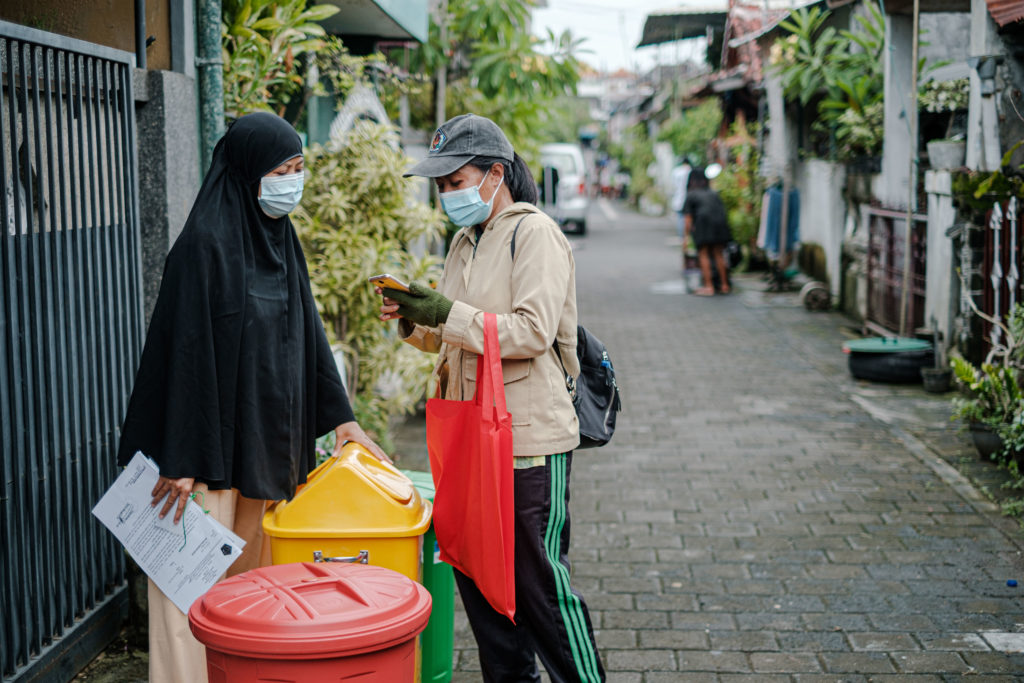
The amount of waste produced by humans is skyrocketing – and it is expected to increase 70% by 2050. There is an urgent need to reduce the strain on the environment and communities around the world – especially those that are most vulnerable and marginalized. As a start, waste collection needs to be more effective and efficient, while recovery of the value from waste streams must be enhanced.
How can digital tools help?
As Delterra’s project lead for digital innovation, I have seen first-hand just how much is possible when tools are designed and implemented in a comprehensive and inclusive manner. I’ve also spotted some barriers that are currently holding us back.
The tech is ready. The system is not.
Digital technologies are available for each step of the waste management process, but implementation is still too fragmented for sustainable, long-reaching impact.
Attempts to digitize have typically been disjointed or undertaken independently by the private sector. Many large organizations use digital tools to reduce their own waste and increase their recycling rates. To face the current crisis however, we need comprehensive, end-to-end digitization and, frankly, this has yet to reach municipal solid waste programs.
Stakeholder survey: share your views
Our latest blog examines the use of digital tools in tackling the waste crisis on a community level: https://t.co/98CBjuLtGT
We want to hear from you too! Where do you see the most potential for impact through digital tools?
— Delterra (@DelterraOrg) June 23, 2022
Opportunities abound on several fronts. Digital tools can help boost operational effectiveness by making decisions more data-driven and help scale existing operations by identifying infrastructure inefficiencies. They can also measure current baseline levels of recycling or trash collection and track improvements. Finally, they can facilitate better communication between governments and citizens.
This article focuses on the most promising solutions in the sector, while an upcoming article will dive into two practical case studies on how digital tools unlock value – based on Delterra’s work with communities in Indonesia and Argentina.
Digital in a high-touch system
There is no doubt that local waste management is a distributed, high-touch, high-frequency system that involves many different materials. What we’ve been looking at is how digital technologies can help solve many of the challenges municipalities face when trying to collect this waste efficiently and recover as much recyclable material as possible.
Below are some of the most exciting examples we have found. I think about them in the following four buckets. I’d be keen to collect your thoughts on which bucket should be prioritized?
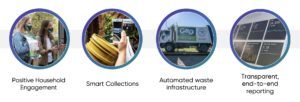
We discuss how digital solutions can help local governments streamline waste management in our latest blog: https://t.co/98CBjuLtGT
What area do you think we should prioritize creating digital tools for?
— Delterra (@DelterraOrg) June 23, 2022
I’d love to hear about your experiences with these and other examples you may have!
![]() Positive household engagement.
Positive household engagement.
Any successful waste management system depends, first and foremost, on buy-in from the community and meaningful interactions with residents. Here’s how digital tools can help:
- Chatbots: Personally, I find digital nudges helpful to remind me which days to take out which streams for curbside collection! And data suggests that I’m far from alone in this – we’ve seen a 5% increase in recycling rates for people who receive WhatsApp reminders. AI-powered chatbots are also an easy and cost-effective way to answer customer queries.
- Gamified social experiences: These are powerful tools to drive community engagement and improve household source separation rates. Examples include trading waste for bartered goods or accruing points that can be used for purchases in partner e-commerce or brick and mortar retailers.
- Map-based apps: These apps clearly identify recycling collection points or sorting centers, allowing people to easily figure out where to take what stream for recycling.
- Apps connecting waste pickers with households: In countries with informal waste systems, these apps help make the jobs of waste pickers easier and more profitable.
- Pay-as-you-throw services: These systems directly incentivize people to sort their waste. They are enabled by digital billing and identification techniques.
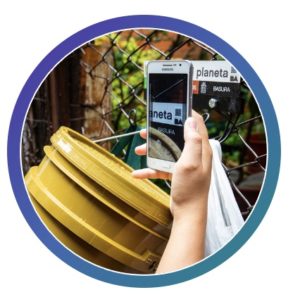
Smart collections.
Picking up a community’s trash is among the most time-consuming and costly aspects of waste management. Some digital tools are designed to streamline and automate this process:
- Optimization algorithms: Algorithms can help improve collection routes and the usage of vehicles and drivers.
- Smart waste refuse bins: Using an AI-based recognition system to automatically identify, sort, and compress recycling also helps save time. These bins also process real-time data on their contents to help facilitate end-to-end traceability of materials.
- Self-driving garbage collection trucks: Along with street sweepers, these trucks help reduce costs and improve safety. Sensors on autonomous trucks continuously monitor surroundings and signal the truck to stop immediately if obstacles appear.
- Drones: Drones also earn a spot on this list as they can collect and monitor data on landfills.
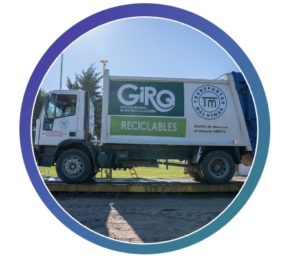
Automated waste infrastructure: Digital tools can help streamline and increase the speed at which waste is sorted and tracked. Some of the most promising applications I’m excited about are:
- Reporting and analytical tools that track infrastructure efficiency.
- Robots and artificial intelligence (AI)-based tools that do automated sorting of recyclables to produce high-purity waste streams.
- Moving from paper-based operations to automating the entire operations process within a recycling center.
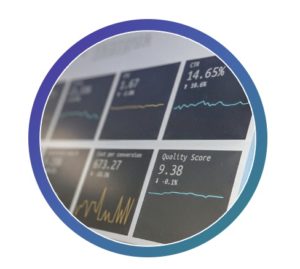
Transparent, end-to-end reporting. Technology can give municipalities a comprehensive view of how waste is being processed and how it is moving through the value chain.
- Software solutions can help trace the journey of recyclables and ensure that these materials are being repurposed and contributing to the reduction in consumption of new resources.
- Blockchain-enabled tracking tools for plastic credits that enable standardization and certification of volumes of plastic collected.
Stay tuned for our on-the-ground learnings!
In the next article, we will share two practical case studies from our experience using digital tools with communities in Indonesia and Argentina. We’ll also unveil Delterra’s plans to launch additional solutions as we seek to achieve greater scale with our programs.
This blog was written and contributed by:

Harry McGuire
Project Lead, Digital Innovations
Delterra
With thanks to contributors:
 Alina Gabdrakhmanova
Alina Gabdrakhmanova
Global Knowledge and Insights Manager
McKinsey & Co Fellow
Delterra
 Joe Zachariah
Joe Zachariah
Former Director of Digital
Delterra
